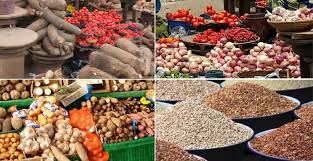
Food Day: Minister, NGOs advocate nutrition as part of COVID-19 prevention strategies
By Angela Atabo
The Ministry of Women Affairs and Action Against Hunger, an NGO have advocated that nutrition should be a major part of the COVID-19 prevention strategies to fortify nutritional value of individuals and communities in Nigeria .
The minister Pauline Tallen made the call on the occasion of World Food Day organised by Action Against Hunger Nigeria in Abuja on Friday.
According to her, the call has become imperative due to the numerous challenges being presently faced by the country.
Tallen, represented by Ms Jumia Mohammed, the Director, Child and Focal Officer, Online Sexual Exploitation, said that the effect of COVID-19 crippled livelihoods and resulted in the increase in all forms of violence and women were the most hit.
She said that available report showed that Nigeria had the highest number of children affected by malnutrition globally, with more than 2.5 million suffering from acute malnutrition.
Of the national prevalence rate, 32 per cent of children under five,only two out of every 10 children affected is currently reached with treatment, report also showed that Nigeria has the highest burden of stunted children in the world.
The ministry has been working to educate the society on the benefits of consuming local nutritious foods among others .
It is important to note that healthy nutritious diets are key to boosting imunity and preventing non-communicable diseases that are risk factors for higher morbidity and mortality .
Tallen added that food and nutrition security should be safeguarded ,as nutrition could not wait.
She said this called for continuous nutrition intervention as short-term disruptions of such programmes could have irreversible effects on child survival, health and development of women and children in the long run.
Ms Beatrice Eluaka, the Executive Secretary, Civil Society Scaling Up Nutrition in Nigeria (CS-SUNN) urged government at all levels to ensure delivery of affordable and sustainable healthy diets for all.
Eluaka said that that there was the need to prioritise the food and nutrition needs of the poorest and most vulnerable households in Nigeria by expanding and improving emergency food assistance and social protection programmes.pp
She called for the approval and implementation of the National Multisectoral Plan of Action for Nutrition to guarantee optimal nutritional status for Nigerians through accelerating the scaling up of priority high impact nutrition specific and nutrition sensitive interventions.
Eluaka called for improvement in the budgetary allocations of nutritions, releasing and cash backing those allocations while ensuring transparency and accountability in use of funds directed at addressing malnutrition.
She called for extension of the current four months maternity leave for nursing mothers to 6 months to enable them exclusively to breastfeed their babies among others.
She encouraged Nigerians to increase their overall demand for nutritious food by choosing healthy, and not allowing sustainable habits fall by the wayside.
Sen. Abubakar Kyari, the Senator representing Borno, said that Nigeria still had a lot to do in the area of fighting hunger in Nigeria, especially in the North East, and in Borno.
Nigerians, Action Against Hunger in collaboration with the Federal and state ministries, agencies and departments and legislators among other stakehlders were developing programmes.
Adama Diarrassouba, the Deputy Country Director, Support Action Against Hunger said that the programmes were aimed at fighting hunger through the improvement of food security, children, pregnant and lactating women nutritional
According to the United Nations global state of food security and nutrition report, almost 690 million people across the world suffered of hunger in 2019, an increase of 10 million people from 2018.
Yet, the situation is expected to be worst in 2020 due to the COVID-19 pandemic, unfortunately, majority of these victims are women and children; the most vulnerable part of the population.
Diarrassouba said that it was in that context that it was collaborating with stakeholders like CSOs, Development partners ,and MDAs to tackle the challenge.
Source: NAN News